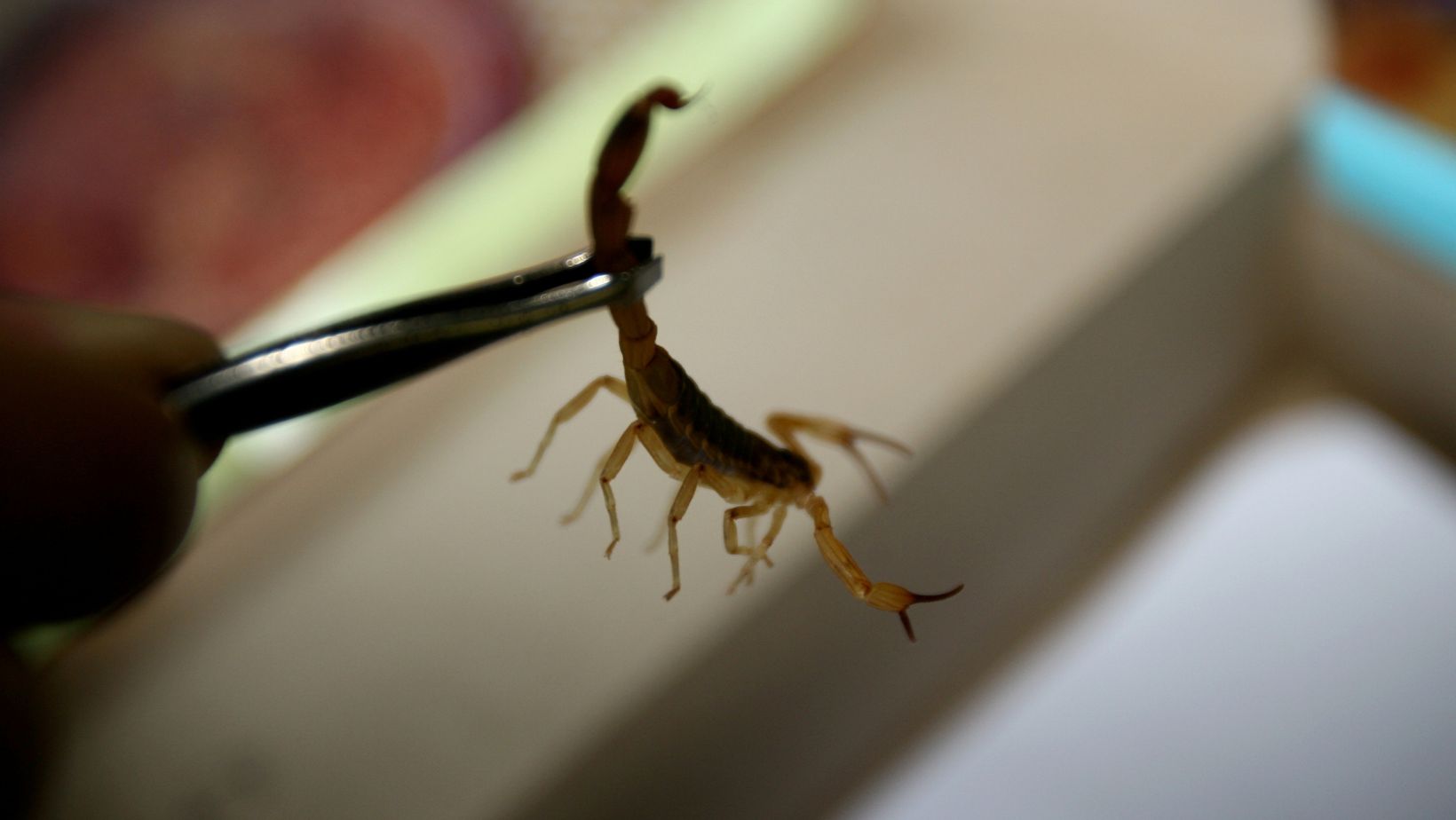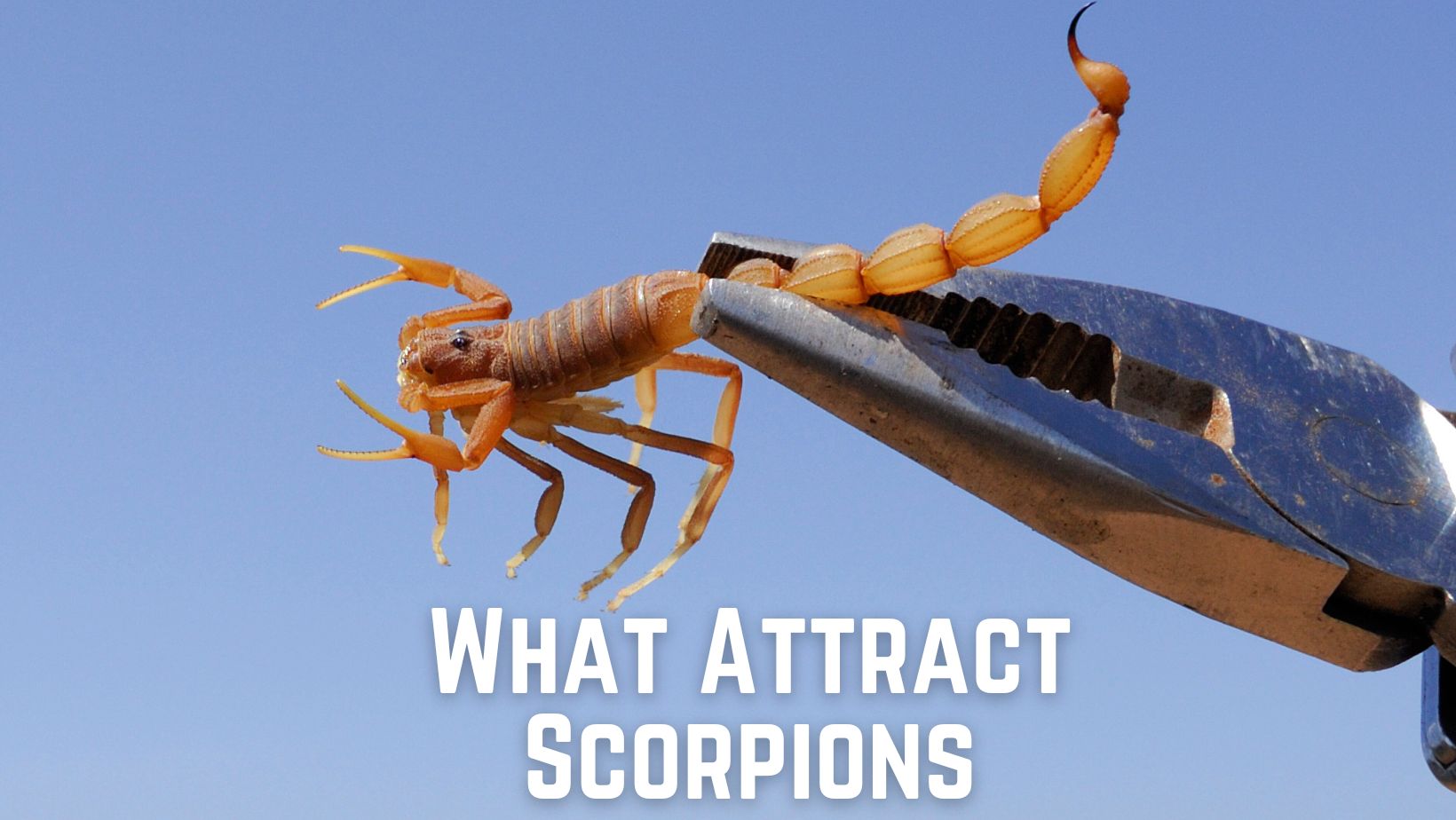Scorpions are arachnids known for their venomous stingers and nocturnal habits. While they play an important role in ecosystems, having them in and around your home can be a cause for concern. Understanding the factors that attract scorpions and implementing preventive measures can help keep them at bay. Here are eight things that attract scorpions to your home and some prevention tips:
- Hiding Places: Scorpions seek out dark, secluded spaces to hide during the day. Piles of debris, wood, rocks, and clutter provide perfect hiding spots. To prevent scorpions from being attracted to these areas, regularly clean your surroundings, remove any unnecessary clutter, and keep your property well-maintained.
- Moisture: Scorpions need water to survive. Accumulated moisture, leaky pipes, and areas with poor drainage can create appealing conditions for scorpions. To prevent excess moisture, fix leaks promptly, ensure proper ventilation, and redirect water away from the foundation of your home.
- Food Sources: Scorpions are predators that feed on insects, spiders, and other small creatures. Having an abundance of prey in and around your home can attract scorpions. Implement pest control measures to reduce the populations of insects and spiders, which are potential food sources for scorpions.
- Cracks and Openings: Scorpions can enter homes through tiny cracks, gaps, or openings in windows, doors, walls, and foundations. Seal these entry points using caulk, weatherstripping, or other suitable materials. Regularly inspect your home for potential entryways and promptly address any openings.
- Outdoor Lighting: Bright outdoor lights can attract insects, which in turn attract scorpions. Consider using yellow or sodium vapor lights instead of white or fluorescent lights, as they are less attractive to both insects and scorpions. Place lights away from entry points and keep them directed downward.
- Vegetation and Landscaping: Unmanaged vegetation, overgrown bushes, and trees close to your home can provide shelter for scorpions. Trim vegetation away from the exterior of your home and maintain a tidy yard. Create a buffer zone between your home and any vegetation to reduce the likelihood of scorpions entering.
- Warmth: Scorpions are cold-blooded creatures that thrive in warm environments. They are often attracted to warm areas around buildings, such as walls, rocks, or concrete structures that retain heat. Minimize these attractive warm zones by shading them or reducing direct sunlight exposure.
- Pet Food and Water: Leaving pet food or water dishes outside can attract insects, which, in turn, can attract scorpions. Keep pet food indoors and only provide water during designated times, removing it afterward. This reduces the availability of food sources for scorpions.

How to keep scorpions away naturally?
- Remove Attractants: Clear away debris, woodpiles, rocks, and other items that can provide hiding places for scorpions. Keep the area around your home clean and well-maintained to eliminate potential habitats.
- Seal Entry Points: Inspect your home for cracks, gaps, and openings where scorpions can enter. Seal these entry points using caulk or weatherstripping to prevent their access. Attention areas around windows, doors, vents, pipes, and utility lines.
- Control Moisture: Address any moisture issues in and around your home. Fix leaks, repair plumbing, and ensure proper drainage to reduce excess moisture, as scorpions are attracted to damp environments. Keep areas around faucets and irrigation systems dry.
- Outdoor Lighting: Use yellow or sodium vapor lights for outdoor lighting instead of white or fluorescent lights. Scorpions are less attracted to yellow light, so it can help reduce their presence around your home.
- Natural Repellents: Certain natural substances may act as repellents for scorpions. Examples include essential oils like cedarwood, lavender, and peppermint. Spray these oils diluted in water around entry points, windows, and other potential access areas.
- Clear Vegetation: Trim bushes, shrubs, and tree branches away from the exterior of your home. This eliminates potential pathways for scorpions to access your property.
- Natural Predators: Encourage the presence of natural predators that feed on scorpions, such as birds, lizards, and some species of spiders. Provide habitats for these predators by creating birdhouses, offering water sources, and preserving natural areas in your garden.
- Professional Assistance: If you’re dealing with a severe scorpion infestation or if you live in an area with venomous scorpions, it may be necessary to seek professional pest control services. They can provide targeted treatments to eliminate scorpions safely and effectively.
Remember, scorpions can be potentially dangerous, so taking appropriate precautions and prioritizing safety is important. If you encounter scorpions or suspect an infestation, exercise caution and seek advice from local pest control experts who are knowledgeable about your area’s specific species and behaviors.
Summary
Addressing these attractants can help reduce the likelihood of scorpions being attracted to your home. Clearing clutter, eliminating moisture sources, sealing entry points, minimizing outdoor lighting, maintaining landscaping, and controlling insect populations can make your property less attractive to scorpions. If you’re dealing with a scorpion infestation or live in an area with venomous scorpions, seeking professional assistance from pest control experts is advisable for effective and safe management.
